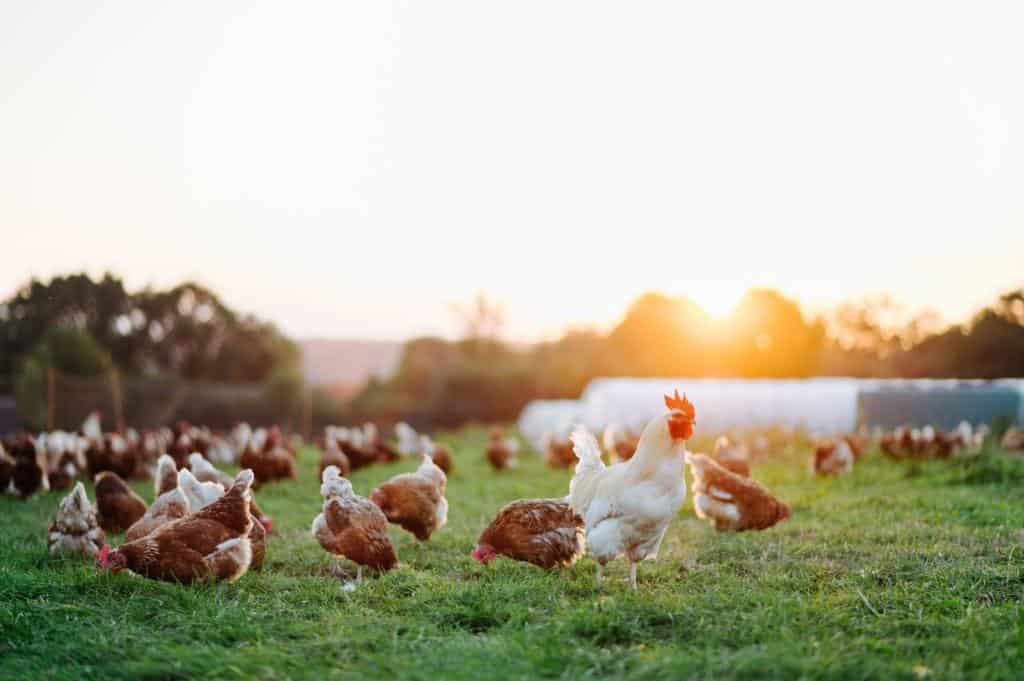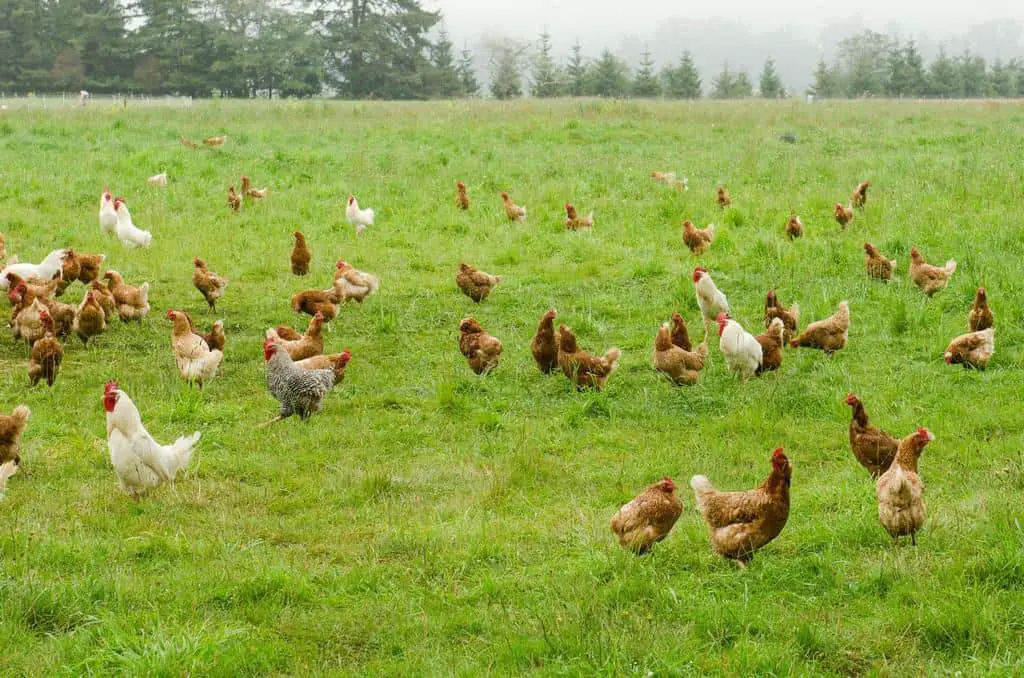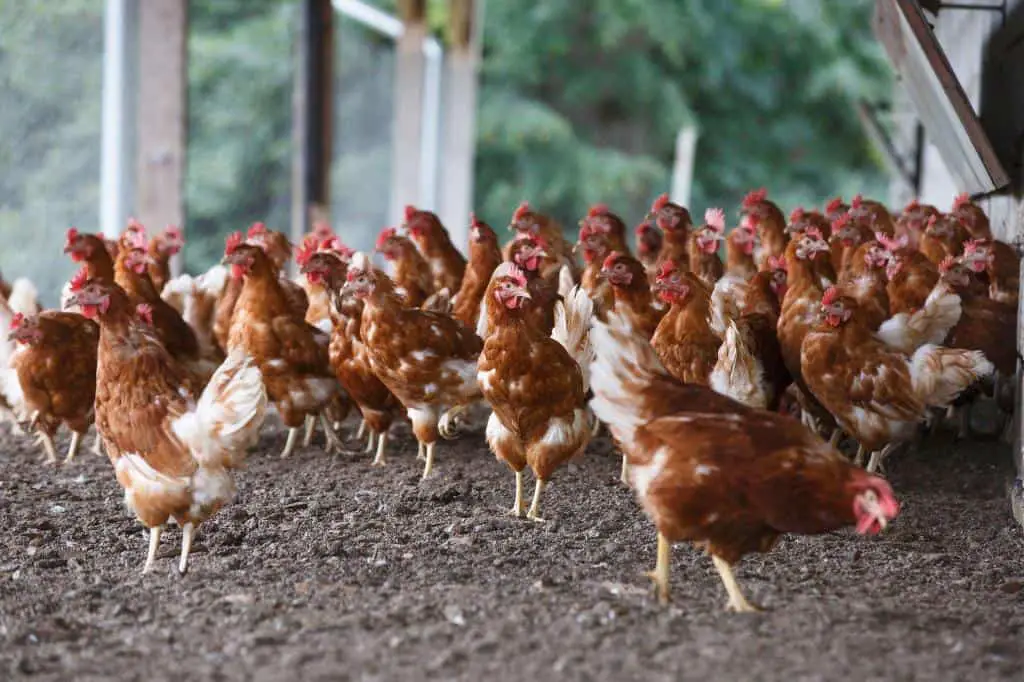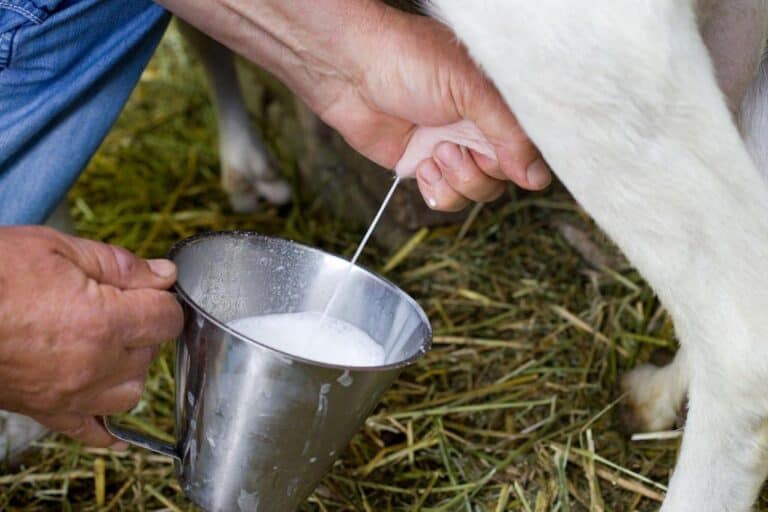Is Free Range Chicken Better and Healthier Than Organic Chicken?

Do you want to buy chicken but don’t know if free-range or organic is better and healthier for you and your family? It can be a tough decision to make, with both options offering benefits in terms of taste, nutrition, and animal welfare.
In this blog post, we’ll take a closer look at the differences between free-range and organic chicken. We provide you with the information you need to make an informed decision on which one is right for you.
From the nutritional value and taste to the environmental impact and cost, we’ll cover it all. So, whether you’re a health-conscious consumer, an animal lover, or just looking for a delicious meal, this post will help you make the right choice.
Definition of Free-range Chicken

Free-range chicken is a term used to describe chickens that are allowed to roam around and forage for food in the open air instead of being confined to a small area or a cage. This means that free-range chickens can go outside and do things like hunt for food, roll around in the dirt, and hang out with other chickens, which are all natural behaviors for chickens.
The benefits of free-range chicken are numerous. One of the biggest is that animal welfare is better. This is because as open pasture-raised chickens, free-range chickens can do what comes naturally to them and are not confined to a small space. This can lead to a reduction in stress, which can improve their overall health and well-being.
Free-range chicken is also known to have a different taste (perhaps better?) compared to non-free-range chicken. Most people think that the taste is more flavorful and juicy because free-range chickens are able to move around and do what comes naturally to them. This allows them to build more muscle and have a higher fat content.
Pathogens are also less likely to get into free-range chicken because they have access to the outdoors and can do natural things like forage and bathe in the dust. This can reduce the need for antibiotic use, which can lead to healthier chickens and fewer antibiotic-resistant bacteria.
In addition to the benefits we’ve already talked about, free-range chicken tends to be better for the environment than chicken that isn’t raised this way. Since free-range chicken can go outside, it can help cut down on the amount of waste the chickens make. This further reduces the feed free chicken need to eat.
| Related: Do KFC Use Free Range Chicken? |
Definition of Organic Chicken
The term “organic chicken” refers to chickens raised in accordance with the National Organic Program (NOP) of the USDA. These rules are mostly about using organic feed, not letting chickens be exposed to certain chemicals and pesticides, and making sure chickens can go outside.
One of the main benefits of organic chicken is that it is produced without the use of synthetic pesticides, antibiotics, or hormones. For organic chicken feed to be made, synthetic pesticides and fertilizers can’t be used. This helps reduce the chicken’s impact on the environment and makes sure the chicken doesn’t eat any chemicals that could be bad for its health.
Organic chickens can also go outside the chicken coop, but they are not cage-free. Doing so lets them act like conventional chickens should and find their own food. This can lead to a reduction in stress and an improvement in overall health and well-being.
People often think that organic chicken is healthier than non-organic chicken, which is another reason to buy it. This is because organic chickens are raised on a diet free of synthetic chemicals, which can lead to a higher content of nutrients such as omega-3 fatty acids.
Comparison of Free-range and Organic Chicken

| Comparison Criteria | Free-range Chicken | Organic Chicken |
| Nutritional Value | Free-range chicken can have a higher fat content, due to their ability to move around and engage in natural behaviors, which results in more muscle development. They also have a lower risk of exposure to pathogens, which can lead to healthier chickens. | Organic chicken is often thought to be more nutritious than non-organic chicken because their diet is free of synthetic chemicals, which can result in a higher content of nutrients like omega-3 fatty acids. |
| Taste | Free-range chicken is known to have a different taste compared to non-free-range chicken. Most people think that the taste is more flavorful and juicy because free-range chickens are able to move around and do what comes naturally to them. This allows them to build more muscle and have a higher fat content. | Organic chicken is also known to have a better taste compared to non-organic chicken. The taste is usually considered to be more flavorful and juicy because organic chickens are raised on a diet that is free of synthetic chemicals, which results in more muscle development and a higher fat content. |
| Environmental Impact | Free-range chicken also tends to have a lower environmental impact than non-free-range chicken. Since free-range chicken has free access to the outdoors, it can help to reduce the amount of waste produced by the chickens, as well as reduce the environmental impact of the feed required to raise them. | Organic chicken is also known to have a lower environmental impact than non-organic chicken, due to its diet being free of synthetic pesticides and fertilizers, which can help to reduce the environmental impact of the chicken’s diet. |
Cost Comparison of Free-range and Organic Chicken
While both free-range and organic chicken can offer benefits in terms of taste, nutritional value, and animal welfare, the consumer’s biggest consideration is cost. We’ll take a closer look at the cost comparison of free-range poultry and organic chicken and the impact it has on consumer choice.
People often think that free-range chicken is more expensive than other kinds of chicken because it costs more to let chickens roam and look for food in the open air.
Some of these costs include getting more land, fencing, and labor, as well as the costs of taking care of the chickens. Even so, many people are willing to pay more for free-range chicken because they think it tastes better, is healthier, and is better for the animals.
Organic chicken is also known to be more expensive than non-organic chicken. The reason behind this is that organic chicken is raised according to strict guidelines set forth by the USDA’s National Organic Program (NOP), which include the use of organic feed, the prohibition of certain chemicals and pesticides, and the requirement that chickens have access to the outdoors.
These additional costs can make organic chicken more expensive than non-organic chicken. But many people are willing to pay more for organic chicken because they think it tastes better, is better for them, and is better for the animals.
It’s worth noting that the cost of free-range and organic chicken can vary widely depending on the specific brand, location, and even the store where you purchase it. It’s recommended that consumers do their own research and compare prices from different sources in order to get the best deal possible. |
| Read: How to Tell If a Chicken Has Internal Bleeding |
Is Free Range Chicken Better and Healthier Than Organic Chicken?
When it comes to buying chicken, consumers have a number of options, such as free-range and organic. Both free-range and organic chicken can offer benefits in terms of taste, nutritional value, and animal welfare, but the question remains: is one better and healthier than the other?
We’ll take a closer look at the comparison between free-range and organic chicken and the debate surrounding which is better and healthier.
Most people think that free-range chicken is better and healthier than organic chicken for a number of reasons. To begin with, free-range chickens are raised in a more humane manner than conventionally raised chickens. They have access to outdoor areas or open pastures where they can do natural things like forage and bathe in the dust. This can lead to a less stressful life and better health in the long run.
Additionally, free-range chickens have been found to have lower fat content and higher protein, iron, and zinc levels than conventionally raised chickens, which makes them a healthier choice for consumers. Most likely, this is because the chickens can do things that come naturally to them, like foraging for food, which can lead to a more varied diet.
Organic chicken is also a good choice for those looking for healthier poultry options. The USDA regulates organic chicken, which calls for the production of the chicken’s feed without the use of pesticides or artificial fertilizers.
This can lead to a healthier and more sustainable food system. However, there is no evidence that organic chicken has a higher nutrient profile than free-range chicken.
Even though both free-range and organic chicken are thought to be better than conventionally raised chicken, the rules and standards for each can be different depending on the farm or company.
Compared to other hens, free-range hens lay better eggs and chicken products. Eggs from free-range hens have 13 less cholesterol, 14 less saturated fat, 23 more vitamin A, 2 times more omega-3, 3 times more vitamin E, and 7 times more beta-carotene than eggs from caged hens, according to DrAxe.com.
So, it’s important to do research on the farm or company you’re buying the chicken from to make sure it meets your standards for how well the chickens are treated and how well they can live. Additionally, it is worth mentioning that free-range and organic chicken can be more expensive than conventionally raised chicken, so it is a matter of cost-benefit analysis.
Where Can I Buy Organic, Free-Range Chicken?
If you’re looking to buy organic, free-range chicken, you have several options available to you. One of the most convenient and accessible ways to purchase this type of chicken is through your local grocery store or health food store.
These stores often have a designated section for organic meats, and you can typically find a variety of organic, free-range chicken options available. Be sure to check the labels carefully to ensure that the chicken is both organic and free-range, as some products may only be one or the other.
Another option for purchasing organic, free-range chicken is through a local farmer’s market. Many small, local farmers specialize in raising free-range chickens, and they often have organic, free-range options available. This is a great way to support your local community while also getting high-quality, sustainably raised chicken. Additionally, some farmers may also offer home delivery or a subscription service, making it even easier to get your hands on their products.
If you prefer the convenience of online shopping, there are also a variety of online retailers that specialize in organic, free-range chicken. These companies often work directly with farmers to ensure that their products are sustainably raised, and they may offer a wider variety of chicken cuts and products than your local grocery store.
However, it’s important to research the company carefully before making a purchase to ensure that they have a good reputation and that their products meet your standards for quality and sustainability.
No matter where you choose to buy organic, free-range chicken, it’s important to be an informed consumer. Take the time to research the farms or companies you’re considering purchasing from, and look for certifications or labels that indicate that the products are truly organic and free-range. By making an informed choice, you can enjoy delicious, sustainably raised chicken that supports your health and the health of the planet.
Ethical Considerations of Free-Range Open Pasture and Organic Chicken Farming
When it comes to choosing between free-range and organic chicken, ethical considerations are an important factor to take into account. Both types of farming have their own practices and regulations that determine how the chickens are raised, treated, and ultimately processed.
Free-range farming is often considered to be more humane than conventional farming practices, as it allows chickens to have more space to move around and exercise. This can result in a higher quality of life for the chickens, as they are able to engage in natural behaviors such as dust bathing and foraging for food. In addition, free-range farming can help reduce the risk of disease transmission, as chickens are less likely to be overcrowded and in close proximity to each other.
However, it is important to note that not all free-range farms are created equal. Some farms may provide minimal access to the outdoors or may not provide adequate shelter or protection from predators. It is important to research the specific farm and its practices before purchasing free-range chicken to ensure that it meets your ethical standards.
Organic farming practices also prioritize the welfare of the chickens. By eliminating the use of antibiotics and hormones, organic farming reduces the potential for animal suffering and antibiotic resistance. Organic farming also prohibits the use of genetically modified feed, which can be harmful to the environment and have unknown health implications for both chickens and humans.
Organic farming also focuses on sustainable agriculture practices, such as crop rotation and soil conservation, which can have a positive impact on the environment. This can include practices such as using cover crops to improve soil health and reduce erosion, as well as reducing the use of pesticides and fertilizers.
However, organic farming can also have its drawbacks. The cost of organic feed and farming practices can be significantly higher, which can result in higher prices for the consumer. Additionally, some critics argue that the organic label can be misleading, as it does not necessarily guarantee that the chickens are treated more humanely than conventionally raised chickens.
Conclusion
In the end, the debate about whether free-range chicken or organic chicken is better and healthier is complicated and has many different sides. Both free-range and organic chicken can offer benefits in terms of taste, nutritional value, and animal welfare. Free-range chicken is known to have a better taste, a lower risk of exposure to pathogens, and a lower environmental impact than non-free-range chicken.
On the other hand, organic chicken is known to be healthier because it is raised without synthetic pesticides, antibiotics, or hormones, but it costs more. Both types of chicken can have a positive impact on animal welfare and the environment.
The choice between free-range and organic chicken comes down to what you like and how much money you have. It is also important to do some research and compare prices from different sources in order to make an informed decision.






